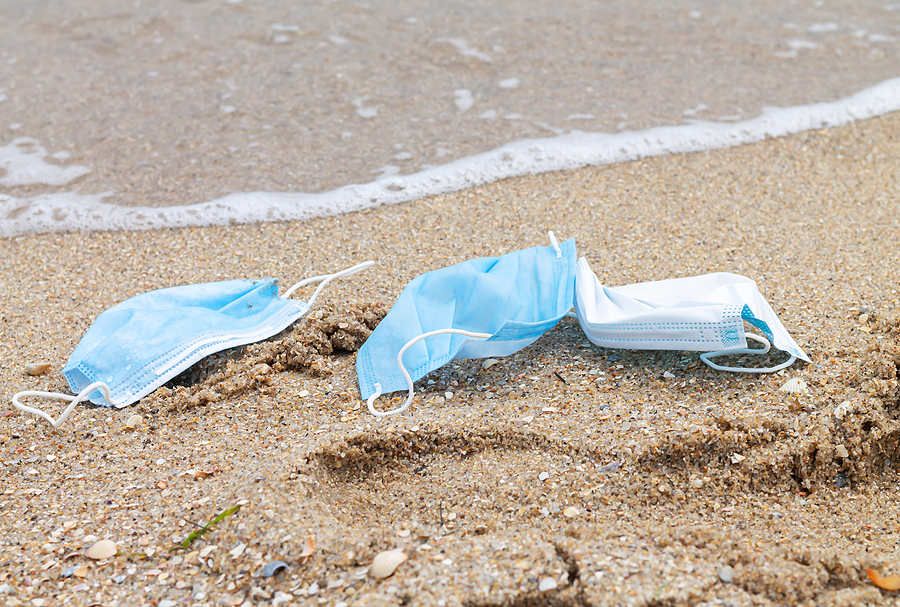A dead perch is trapped in a latex glove in the canals of The Netherlands. A long-tailed macaque chews on a face mask in Malaysia. A sparrow uses a glove as nesting material in Poland. While Personal Protective Equipment (PPE) has saved countless lives during this pandemic, it’s proving deadly to our wildlife. According to an OceansAsia report, nearly 1.56 billion face masks entered the oceans in 2020.
“The 1.56 billion face masks are just the tip of the iceberg,” says Dr. Teale Phelps Bondaroff, Director of Research for OceansAsia.
Single-use or disposable face masks, made of plastics such as polypropylene, polyethylene, and vinyl, can take up to 450 years to break down, slowly destroying our wildlife and ecosystems.
How We Can Reduce PPE Pollution
The COVID-19 crisis is far from over, so using PPE will continue to be a necessity. There are several ways, though, we can do our part to limit the amount of PPE pollution:
- Wear reusable masks or face shields whenever possible.
- If you must use throwaway masks or gloves, dispose of them properly in waste receptacles. Also, snip off the ear loops of masks before disposing to avoid entanglement hazards.
- Join thousands of volunteers across the world by picking up PPE trash. If you use OceanConservancy’s CleanSwell app, you can record each item of trash you collect, including total weight, as well as share cleanup results with friends and family on social media.
- Donate to organizations such as OceansAsia and OceanConservancy to support their efforts to cleanup PPE waste and rescue affected wildlife.
Many cities all over the world are raising fines for those that who litter PPE. In Boca Raton, Florida, citizens caught improperly disposing of PPE could face fines up to $250. PPE littering in Toronto, Canada can result in a $500 fine.
Be Sure to Properly Store PPE
According to the Occupational Health and Safety Administration (OSHA), PPE must be “properly removed, cleaned, and stored or disposed of, as applicable, to avoid contamination of self, others, or the environment.” Protection First’s door caddies keep PPE secure and handy for frontline workers and meet all CDC recommendations for standard, airborne, droplet and contact isolation compliance regarding antibiotic resistance, as well as the reduction of the spread of nosocomial infections. By properly storing and disposing PPE, you’re helping to create a safer environment for people and wildlife.
